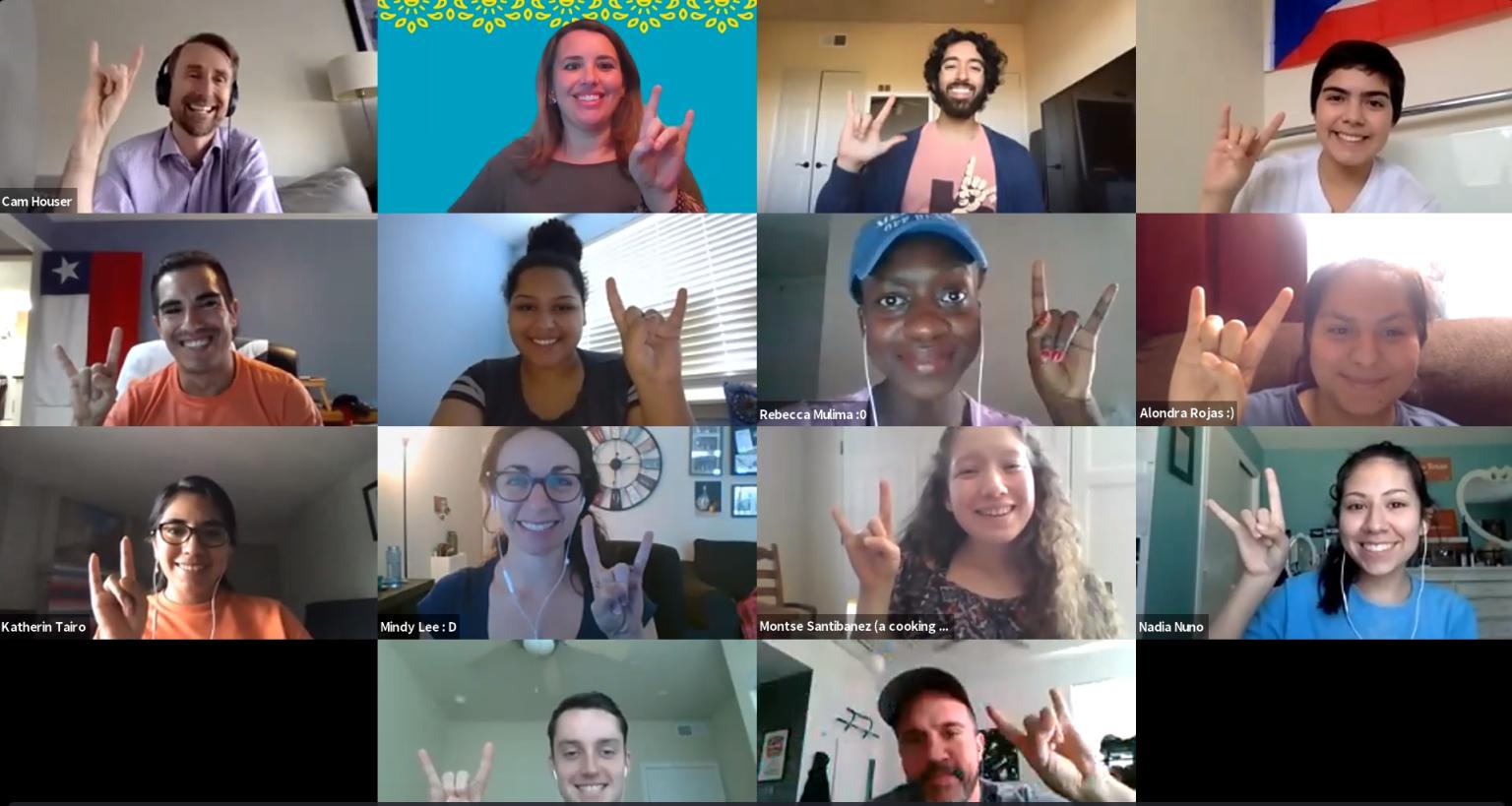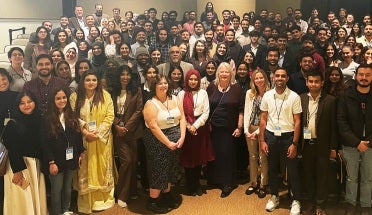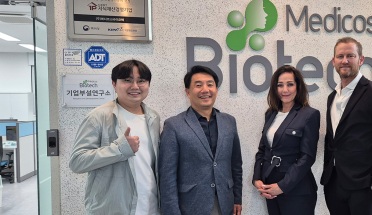
Faculty and Alumni Share Career Insight at East and South East Asia Symposium
- Dec 16, 2020
- Global Customized Programs
Despite the challenges of the pandemic, UT continues to integrate international perspectives into its curricula and prepare its graduates for success in a global economy. Throughout October, students, faculty and industry leaders engaged in in-depth discussions covering geo-political and socio-economic trends, social movements and regional culture at the first virtual installation of Global Professional Training: East and South East Asia Symposium.
The online format allowed UT alumni around the world to attend the event and offer participants personal insight into major industries in the region.
The event consisted of a two-day conference followed by a two-week series of interactive workshops and panels packed with insights on how to enter the professional market and what working in Asia is actually like. The workshops covered industries such as government and education, business and banking, media and marketing and STEM. Presenters and panelists included industry leaders working in six different countries across the region and representing firms such as J.P. Morgan, The New York Times and Micron Technology.
The symposium had a total of 17 presenters, including many distinguished UT faculty as well as UT alumni presently working in East and Southeast Asia, and was attended by over 60 UT students, representing a broad mix of UT’s schools and colleges. Recordings of the live workshops, panels and addresses are now available online.
Sonia Feigenbaum, senior vice provost for global engagement and chief international officer, kicked off the conference with welcome remarks followed by an intimate conversation with Ái Vuong, co-owner of TÁPI Story and Director of Creativity at School of Slow Media.
"I can tell you from experience that you do not acquire intercultural competency overnight or in one semester or two semesters," Feigenbaum said. "It is a lifelong process. It is the beauty of global engagement that we discover each other."
Feigenbaum reiterated the event's themes of increasing cultural awareness and the need to continue engaging with the world despite current global circumstances.
"We have all reacted to the COVID-19 pandemic in different ways," Feigenbaum said. "As individuals, it has given us the time and to reflect upon what it means to be interconnected, what it means to think about our humanity and think about the fact that, quite frankly, borders should not matter when there is a crisis. And so, for us, it is important to continue global engagement amidst this crisis."

Sam Ushio, Founder of Ikigai Lab, led Ikigai Workshop: Maximize the Power of Purpose, an interactive session designed to educate participants about the Japanese philosophy of ikigai, which loosely translates to “reason for being” or “purpose.”
At the workshop, Ushio shared how his great-grandmother’s century-old legacy of remaining steadfast and true to her ikigai inspired him. Ushio gave a comprehensive presentation explaining the concept and how it can be applied to personal and professional settings.
Senior Celeste Oon, a first-time GPT attendee majoring in Asian studies and linguistics, was one of the participants in Ushio’s workshops. She says the event opened her eyes to all the career possibilities abroad and the many different ways to use her skill set.
“I loved how interactive the workshop was,” Oon said. “I ended up making friends, and we even exchanged contact information. Overall, I did a lot of self-reflection and learned a great deal about myself and my values. I took away a lot from that event.”
Jonathan Cantrell, a first-year electrical engineering master’s student from Bellaire, Texas, said the ikigai workshop was his favorite of the sessions offered this year.
“It was great being able to learn about a philosophy from a different culture, and then being able to recognize some of its similarities and differences with western philosophies,” Cantrell said. “Not only was it interesting, but it was also very applicable to my daily life.”
Cantrell said the conference made him feel much more culturally competent and brought him closer to his goals of working in South East Asia.
“This program has made me more aware of some of the regional complexities and specific issues that will be important to be familiar with when working in Asia,” Cantrell said. “It has also shown me there are lots of opportunities all over the region in various fields besides engineering, which is great if I ever want to broaden my career.”
While a student at the Forty Acres, symposium panelist Gaëlle Pfister (B.S., B.A. ‘17) attended GPT Asia and later studied abroad, spending seven months in Shanghai, Beijing and Taiwan. After graduating from UT with degrees in corporate communications and Chinese, she moved to Taiwan where she currently works as a marketing and business development team lead at a startup.
“I had never been to Asia before — UT gave me that opportunity,” Pfister said.
As a presenter for the Media and Marketing career panel, Pfister came full circle and shared her experiences at the very symposium that inspired her to work in Asia. Pfister says UT’s extensive academic resources paired with access to opportunities like GPT and Education Abroad catapulted her career trajectory from Austin to Asia.
“GPT Asia gave me a different way to look at not only living but also working abroad,” Pfister said. “It gave me the necessary tools to work in different cultures with colleagues from different backgrounds. It definitely helped me build my global lens.”
Corporate communications senior Lily Olson has always been interested in working in Asia. This year marks her second time attending the GPT Asia conference; she says that the shift to an online format proved to be a unique and beneficial experience as it taught her how to adjust to changes in professional settings brought about by the COVID-19 pandemic.
“Because we have had to do everything via Zoom, I’ve learned the importance of networking and connectedness,” Olson said. “Just because we can’t physically interact with people or go out, that does not mean that we can’t build connections and prepare for a post-pandemic world.”
Whether she works in East or Southeast Asia, in the technology, publishing or nonprofit industry, Olson says that this year’s GPT Asia conference helped her make her goals of working abroad more tangible.
"GPT has helped me realize all of the different opportunities available to go about working abroad," Olson said. "It solidified my decision that working abroad is the right thing to do for me."



